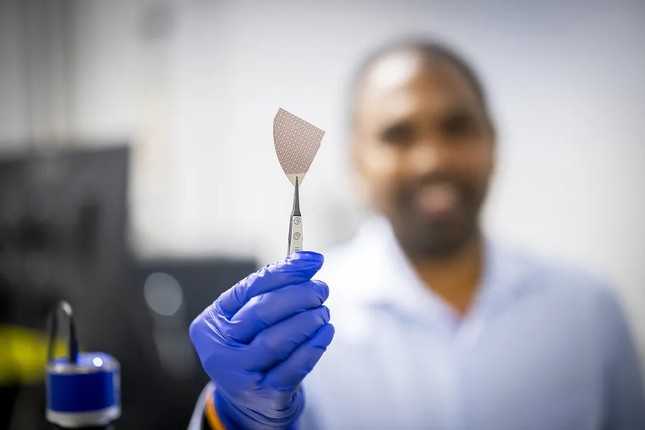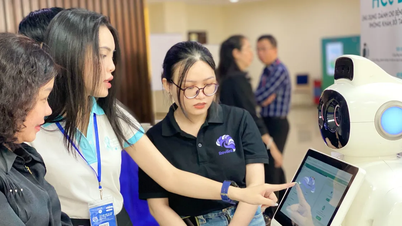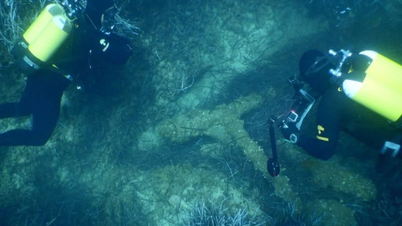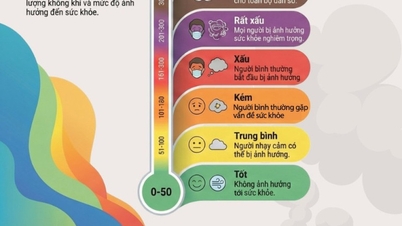 |
Computer storage devices made from ferroelectric aluminum scandium nitride, which can withstand extreme temperatures. (Photo: University of Pennsylvania) |
New computer storage that can operate at temperatures so hot that rock begins to melt could pave the way for computers that operate in the harsh environment on Venus.
Today's most durable non-volatile memory (NVM) devices, including solid-state drives (SSDs), can fail at temperatures as high as 300°C. However, scientists have created and tested a new ferroelectric diode (a semiconductor switching device) that continues to operate for hours even when heated to 600°C.
This means that sensors and computing devices using diodes can be placed in harsh environments – such as nuclear plants, deep-sea oil and gas exploration, or the hottest planet in our solar system – where previously they would have failed within seconds.
NVM devices are made from a material called ferroelectric aluminum scandium nitride (AlScN), which is at the cutting edge of materials science and has only emerged as an option for high-performance semiconductors in the past five years.
Here, the device is based on an AlScN diode with a thickness of 45 nanometers, which is 1,800 times smaller than the width of a human hair.
 |
Scientists are using aluminum scandium nitride to develop computers that can operate on extremely hot planets like Venus. (Photo: SCIEPRO) |
One of the team's most remarkable findings was that the devices could handle one million read cycles and maintain a stable on-off ratio for more than six hours, an unprecedented result, said Dhiren Pradhan, a postdoctoral researcher in electrical and systems engineering at the University of Pennsylvania in the US.
The work builds on existing research into semiconductors that can also operate at extreme temperatures. Add this memory and you have a computer that can work almost anywhere, the scientists say.
"This is not just about improving equipment, but also about creating new steps in science and technology," said Deep Jariwala, associate professor of electrical and systems engineering at the University of Pennsylvania, USA.
In particular, scientists say a new era of silicon-free computing devices could emerge that integrates memory and processing closer together for data-intensive tasks like artificial intelligence (AI).
Scientists believe the new approach – combining heat-resistant memory and processors together – could eventually lead to AI processing in extreme conditions on other planets.



![[Photo] National Assembly Chairman Tran Thanh Man attends the VinFuture 2025 Award Ceremony](/_next/image?url=https%3A%2F%2Fvphoto.vietnam.vn%2Fthumb%2F1200x675%2Fvietnam%2Fresource%2FIMAGE%2F2025%2F12%2F05%2F1764951162416_2628509768338816493-6995-jpg.webp&w=3840&q=75)



![[Photo] 60th Anniversary of the Founding of the Vietnam Association of Photographic Artists](/_next/image?url=https%3A%2F%2Fvphoto.vietnam.vn%2Fthumb%2F1200x675%2Fvietnam%2Fresource%2FIMAGE%2F2025%2F12%2F05%2F1764935864512_a1-bnd-0841-9740-jpg.webp&w=3840&q=75)










































































































Comment (0)